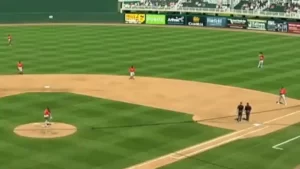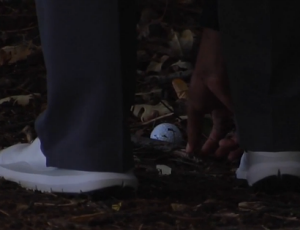The NFL has a rule called tampering. Basically, it’s against the rules for any team employee to speak with an agent or player on another team except during a short two-day period. It’s largely against the rules even for players who know each other but are on opposing teams.
Basically, if you play for one team in the league, you cannot discuss moving to another team with anyone from another team except for those two-days during the off-season. Recently two moves involving Saquon Barkley and Kirk Cousins triggered the NFL into an investigation. There are reports both were approached by their new team outside the window. Tampering.
Tampering is totally Outrageous
Outrageous! How dare an employee at one place of work even discuss moving to another place of work outside a forty-eight-hour window? Would we tolerate such behavior in any other walk of life? Obviously, at your job, you cannot even so much as speak to someone in management at another company without severe repercussions.
Even if you’re just shooting the breeze with one of your buddies over at Company X but he may have mentioned you’d be a good fit to management a year earlier, against the rules! Scofflaw! Villain! Criminal! What is this world coming to? How can employees betray their employers with such brazen disloyalty?
Imagine discussing your salary concerns with a potential employer while you’re still at your old job. What kind of monster are you?
Why do we have Tampering Rules?
That’s a rhetorical question. The answer is obvious. To give the current employer an enormous advantage. No one else can negotiate with the player in question before that short window. Players like Barkley and Cousins, or their agents, can’t get a feel for their value in the open market.
Would the judicial system support such a scheme in any other line of business? Another rhetorical question. It’s completely and totally outrageous.
It’s possible a player might be negotiating with another team during the course of the season and it might affect their play although this is highly suspect. Players want to increase their value and are generally playing their best. That’s beside the point. If you’re working a job, you can negotiate for another position with another company at any time. You know it, I know it, everyone knows it.
Madness, I tell you, Madness
Seriously, how can anyone listen to the NFL spout off about tampering rules? Can you imagine getting a job at another company with better pay and working conditions but an industry representative says, “Nope, sorry buddy. Tampering. Go back to your original company at the original salary.”
We’ve got the NFL draft coming up as well. Go read my rant about that. Ranty, rant, rant!
Tom Liberman





 Professional Golf has a lot of rules and, prior to cameras being pointed at virtually every shot, it was largely up to players to report violations on their own.
Professional Golf has a lot of rules and, prior to cameras being pointed at virtually every shot, it was largely up to players to report violations on their own.